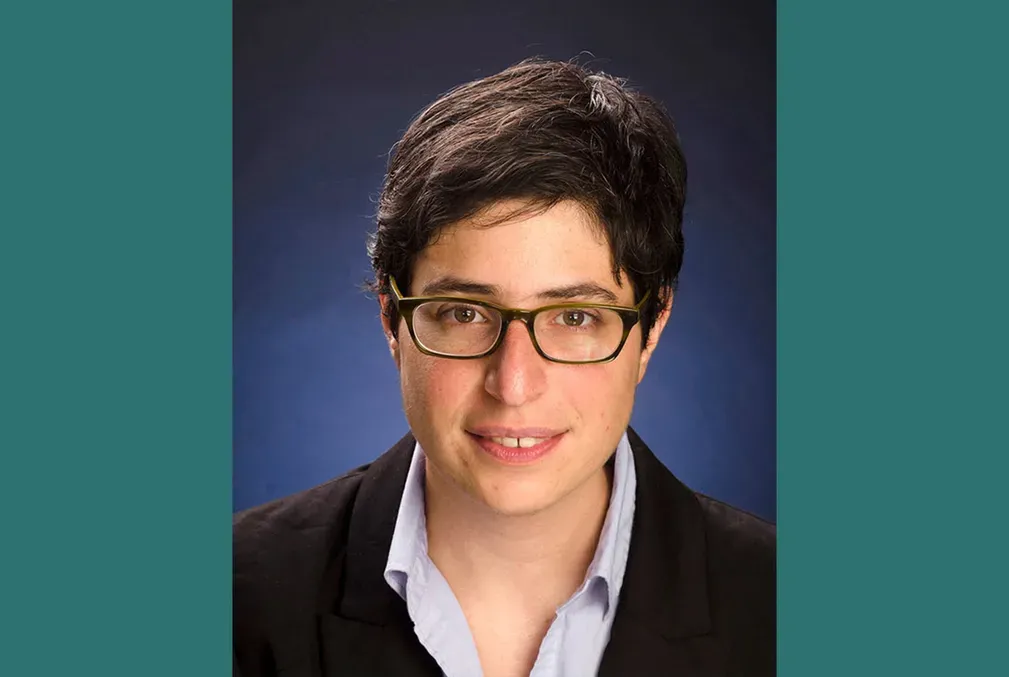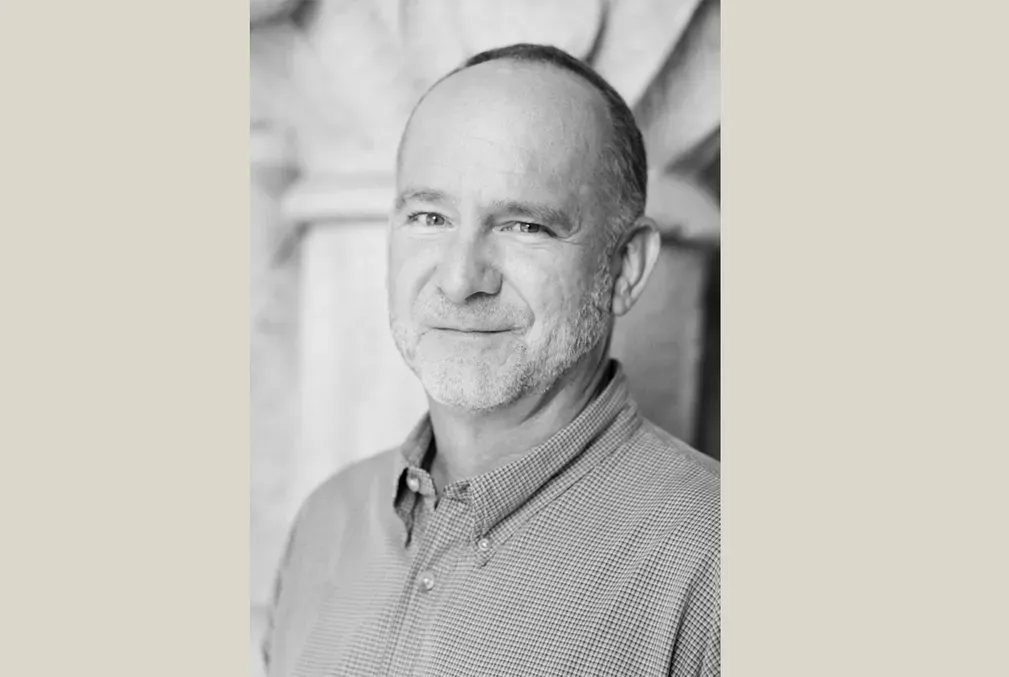For writer Molly Antopol, silences create room for fiction
The Creative Writing Program’s newest fiction writer tells wide-ranging stories about individual lives shaped by the forces of history.
Molly Antopol expected to be a union organizer like other members of her Los Angeles-based progressive family. Instead, she pursued writing and in 2023 joined Stanford’s School of Humanities and Sciences as a professor in the English Department, member of the Creative Writing Program, and author of a highly acclaimed collection of short stories, The UnAmericans (W.W. Norton, 2014).
The UnAmericans has been recognized for nuanced, believable stories set everywhere from contemporary rural Maine to World War II-era Belarus. The fictions present predominantly Jewish characters who experience their individual dramas—whether intimate, like a teenager coping after her mother’s sudden death, or geopolitical, like an exile from an oppressive communist regime remaking his life in the United States—against the great historical dramas of World War II and the rise and fall of the Soviet Union. The UnAmericans received the New York Public Library’s Young Lions Fiction Award and a National Book Foundation 5 Under 35 Award. It was also longlisted for the National Book Award and was a finalist for the PEN/Robert W. Bingham Prize.
But back when Antopol was an undergraduate at the University of California, Santa Cruz, she focused her efforts on supporting the United Farm Workers in Watsonville, California.
“The work felt incredibly important,” Antopol said. “I always wanted to be a writer, but being a writer never felt like something that I could actually do. It felt very pie in the sky.”
Finding her subject matter and method
Perhaps informed by her experience with organized labor, Antopol’s approach to writing leans heavily into hard work. She painstakingly researches her stories to make them feel authentic. She travels, interviews people, combs through archives, and listens to oral histories to build the “poise” and “heft” for which her stories have been recognized. As part of her MFA from Columbia University (2004), Antopol wrote a complete collection of stories, never intending to publish it, before she turned her hand to The UnAmericans.
“I felt like I needed to learn how to write character, how to write setting, how to write dialogue,” Antopol explained. “I wanted to learn all of the technical skills that I could in order to write a book that I would be comfortable putting out into the world.”
After college, Antopol received a fellowship to do environmental and human rights work in Israel. That experience helped define the themes and settings in her writing.
At a party, she met a woman from Antopol, Belarus—a war-decimated predominantly Jewish village from which the writer takes her name. Incredibly, the woman knew Antopol’s deceased namesake. The connection led Antopol to a kind of collective scrapbook, called a Yizkor book, containing oral histories, maps, and photos memorializing the town’s Jewish residents killed in World War II. In addition to providing the raw material for a story in The UnAmericans about resistance fighters in Belarus, the book opened Antopol’s eyes to the realization that narrators often don’t share directly what is most important. The emotional heart of a story can be like a drop of dish soap in oily water, Antopol realized, and the same was true in her family.
“I’m interested in stories that explore and sometimes interrogate the nature of storytelling itself,” Antopol said. “Getting to read that Yizkor book made me think about all of the gaps and silences in the stories told in my own family—which loves to tell stories. But Antopol, in Belarus, was a place I had never heard about. This helped me think about the ways humans tell stories about the dark periods of history that no one wants to look at.”
The slippage between the emotional heft of a story and how it is told also shapes the stories in The UnAmericans and those stories her characters tell themselves. For example, the protagonist in “The Quietest Man” organizes against the communist regime in Czechoslovakia as a young professor. When arrested and interrogated, he does not report on his fellow activists, thus earning his nickname. But later in his life, as an exile in the United States, he faces questions from his daughter, who is writing a play about her father’s formative drama. The Quietest Man tells her a web of lies that make him seem a better man and father than he has ultimately been.
“[A]s I continued to talk,” he concludes, “I wondered if any of what I was saying would begin to feel like the truth. It didn’t yet, but I was just getting started.”
Antopol worked on The UnAmericans for 10 years. Logging long days at her desk, she put each story through more than a dozen major revisions, some while she was at Stanford as a Wallace Stegner Fellow (2006-2008) and as a Jones Lecturer (2008-2018).
Feeling like a writer
Following her lectureship, Antopol taught at Harvard University and then the Michener Center for Writers at the University of Texas at Austin. But The Farm feels like home.
“Stanford is the first place I ever really felt like a writer,” Antopol said. “It is an incredible thing to be back and to be on the faculty and to get to work with these amazing students.”
For some writers, teaching is something they do to support their writing. For Antopol, it has helped reveal her craft.
“Once I started teaching and realized just how much I loved it and how beautifully it complemented the writing, I knew I was on the right path,” she said.
As a teacher as well as a writer, Antopol focuses on craft and revision. She aims to supply her students with as many ideas and examples as she can to empower them to excavate “the narrative possibilities that are inherent in each piece” of their writing to steer their revisions, she said.
It’s important to Antopol to make sure student writers get insights, in addition to edits, from their classmates and from her so they can find their own voices. The first half of her semester-long workshops are devoted to reading published authors’ work—her picks include Edward P. Jones, Joy Williams, Roberto Bolaño, and Gish Jen—to train students how to appreciate different styles and objectives.
“We’re developing a vocabulary, almost a library of terms and of books to discuss,” Antopol said. “That way we feel really comfortable discussing fiction writ large with each other before we apply any of this to the work of the writers in the room. It’s also about teaching my students how to read like writers—to try to understand what the writer is doing and what we can learn from that.”
The learning environment also inspires the instructor.
“There is just something so incredible about being with a group of students who value language, sentences, and stories in such a deep and profound way,” she said. “Working with these smart and engaged students and talking so seriously, so rigorously, and so generously about stories helps me as a writer, too. The combination has been amazing.”
Antopol is currently completing work on her forthcoming novel, Saturn, which will be published by W.W. Norton.



